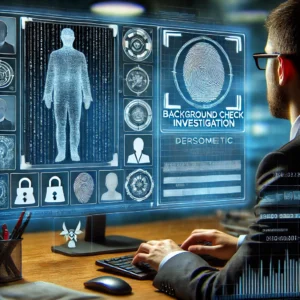If you’re considering a career in government, defense, or private sectors dealing with sensitive information, obtaining a security clearance is a crucial step. The process can be complex, requiring background checks, eligibility criteria, and compliance with strict regulations.
in government, defense, or private sectors dealing with sensitive information, obtaining a security clearance is a crucial step. The process can be complex, requiring background checks, eligibility criteria, and compliance with strict regulations.
In this comprehensive guide, we’ll break down everything you need to know about security clearances, including types, application steps, common challenges, and best practices to ensure success.
What is a Security Clearance?
A security clearance is an official authorization granted by the government that allows individuals access to classified or sensitive information. It ensures that only trustworthy personnel can handle sensitive national security matters.
Why is Security Clearance Important?
-
- Protects classified data from unauthorized access.
-
- Essential for employment in government agencies, defense contractors, and private organizations.
-
- Opens opportunities for high-paying jobs in secure industries.
Types of Security Clearances

1. Confidential Clearance
-
- The lowest level of clearance.
-
- Requires a basic background check.
-
- Renewal every 15 years.
2. Secret Clearance
-
- Grants access to moderately sensitive information.
-
- Requires a detailed investigation, including financial and criminal history.
-
- Renewal every 10 years.
3. Top Secret (TS) Clearance
-
- The highest level of clearance.
-
- Requires an extensive background check, including interviews and financial scrutiny.
-
- Renewal every 5 years.
4. Sensitive Compartmented Information (SCI) & Special Access Programs (SAP)
-
- Additional classifications within Top Secret clearance.
- Restricted to individuals with a specific need-to-know basis.
Who Needs a Security Clearance?
You may require security clearance if you work in:
Government agencies (CIA, NSA, FBI, DoD)
Defense contractors (Lockheed Martin, Raytheon)
Cybersecurity & IT roles
Military personnel
Aerospace & intelligence industries
The Security Clearance Process
Step 1: Job Offer & Sponsorship
You must receive a job offer from an employer requiring security clearance. Only organizations with government contracts can sponsor applications.
Step 2: Background Investigation
-
- Personal History Questionnaire (SF-86) – Covers employment, travel, finances, and criminal history.
-
- Interviews – Conducted with family, friends, employers, and neighbors.
-
- Financial & Criminal Checks – Ensures no outstanding debts, bankruptcy, or criminal activity.
Step 3: Polygraph Examination (For Certain Clearances)
Some high-level clearances require a polygraph test to verify truthfulness in responses.
Step 4: Adjudication
Government investigators analyze all findings and decide if clearance is granted.
Step 5: Continuous Monitoring & Renewal
Security clearance holders are subject to periodic reinvestigations and monitoring.
Common Challenges & How to Overcome Them
1. Financial Issues
Outstanding debt, bankruptcy, or unpaid taxes can be red flags. Ensure financial stability before applying.
2. Criminal Records
Past criminal offenses may delay or deny clearance. Be honest and provide necessary documentation.
3. Foreign Contacts
Extensive ties to foreign nationals can raise security concerns. Full disclosure is necessary.
4. Drug Use
Drug use history can impact eligibility, especially recent usage. Many agencies have strict policies.
Security Clearance Denial & Appeals
If your clearance is denied:
-
- You will receive a Statement of Reasons (SOR) explaining why.
-
- You have the right to appeal the decision.
-
- Hiring a security clearance attorney can increase your chances of reversal.
How to Maintain Your Security Clearance
Follow reporting guidelines for life changes (marriage, financial shifts).
Avoid unauthorized information sharing.
Report any foreign travel or foreign contacts.
Stay updated with renewal requirements.
Start Your Journey Today
Security clearance can open doors to prestigious careers. If you’re looking to get started, explore resources like:
🔹 Security Clearance Scholarships
🔹 Donors & Partners Supporting Security Clearance
🔹 More Guides & Insights on Security Clearance
Ready to take the next step? Contact Us for guidance on your security clearance journey!
